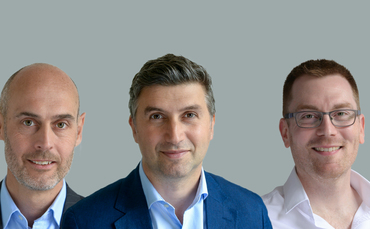Amati Global Investors’ new Strategic Innovation fund promises to stay away from ‘hyper growth stocks’


Amati Global Investors announces the release of a new global equity portfolio, the TB Amati Strategic Innovation Fund, which is scheduled to launch later this month.
The fund will take a step away from the boutique’s well-known UK small-cap offerings and take on a ‘go anywhere’, all cap, multi-sector, taking a benchmark and style agnostic approach, although many of the holdings will be in the ‘growth’ space.
It will be invested in 30-50 stocks, fitting into three buckets: pioneers, enablers, and adopters of innovation.
One of the fund’s managers, Mikhail Zverev, who was hired in February last year to build out the global equity strategy, said that there was a lot of “investment excitement” about getting the fund running, despite the tricky macro environment it would be navigating.
Morningstar research: Article 8 funds suffer outflows for first time
He said that there is “a real proven inefficiency in the marketplace around innovation” which they wanted to extract value from.
Zverev’s co-managers will be Graeme Bencke and Dr Gareth Blades, who share a range of fund management expertise.
Bencke previously worked at F&C Asset Management – now BMO Asset Management – as well as Gresham House and Gareth is an analyst across the TB Amati UK Smaller Companies Fund, Amati AIM VCT plc and the Amati IHT Portfolio Service.
Regarding the TB Amati Strategic Innovation Fund, the team said that innovation referred to whether a company was able to do something that had not been done before.
Zverev said: “What is the value of that innovation as a whole, how does it improve functionality?”
“We are looking for a future that is already happening somewhere,” he said.
“We are reluctant to give an image the world in 20 years’ time, because we might be wrong. But we like to see something that’s beginning to gain traction and make a difference somewhere, and it has a really long, compelling runway for growth.”
This did not involve a high exposure to what the team called “hyper growth stocks”, which included the likes of Tesla, Amazon and Meta, which are all arguably ‘pioneers’ in their own regard, but are not the sorts of companies the Strategic Innovation Fund is interested in.
These names and other mega-cap stocks have struggled in the high inflation environment recently, as this along with rising interest rates have dampened the potential future returns, triggering a selloff in growth stocks.
Zverev said that they want to build a portfolio that is “diversified enough so that it is not just 100% hyper growth, which is very interest rate sensitive”. Rather, it was better to hold “companies that the supply picks and shovels”, which make those names innovators, or, under the radar stocks pushing through in their own spaces, such as electric vehicles, photonics or broader sectors, such as healthcare and industrials.
He argued that this innovation route was an ideal way to access the return prospects of growth without taking on the issues of overblown valuations or risk associated with persistent inflation.
Zverev added: “If innovation is achieved it comes with economic benefits, such as market share, pricing power and better margins, cash regeneration and superior growth. And those things are a defence against macroeconomic challenge. […] In that way innovation is, to a degree, a defence against this broad macroeconomic uncertainty”.
This does not mean that the managers are expecting a simple start though.
This week, both the Bank of England and the US Federal Reserve announced intertest rates of 0.25% and 0.5% respectively in a bid to tackle the levels of high inflation.
Bank of England hikes interest rates to highest level since 2009
Bencke said his own dad commented that “investing must be nightmare at the minute”, to which he replied, “it’s always a difficult market, there is always something that people are fixated on.”
He added that the trick to navigating top-down headwinds is to “lock onto your fundamental equity stories and trust your investment thesis and let it steer through markets like a ship in a storm”.
The fund will adhere to Amati’s environmental, social and governance (ESG) criteria, which includes a human rights standards (ESGH).
This means the fund will not have exposure to Russia or China, which both have “troubling” human rights issues, according to the managers.
All three managers have backed this fund with their own personal savings, supporting the thesis that the innovation linked companies in the market were very “mispriced” despite the returns potential in them.
Zverev said: “We as a firm, want to capture that. That’s what drives us, and it gets us out of bed in the morning.”
